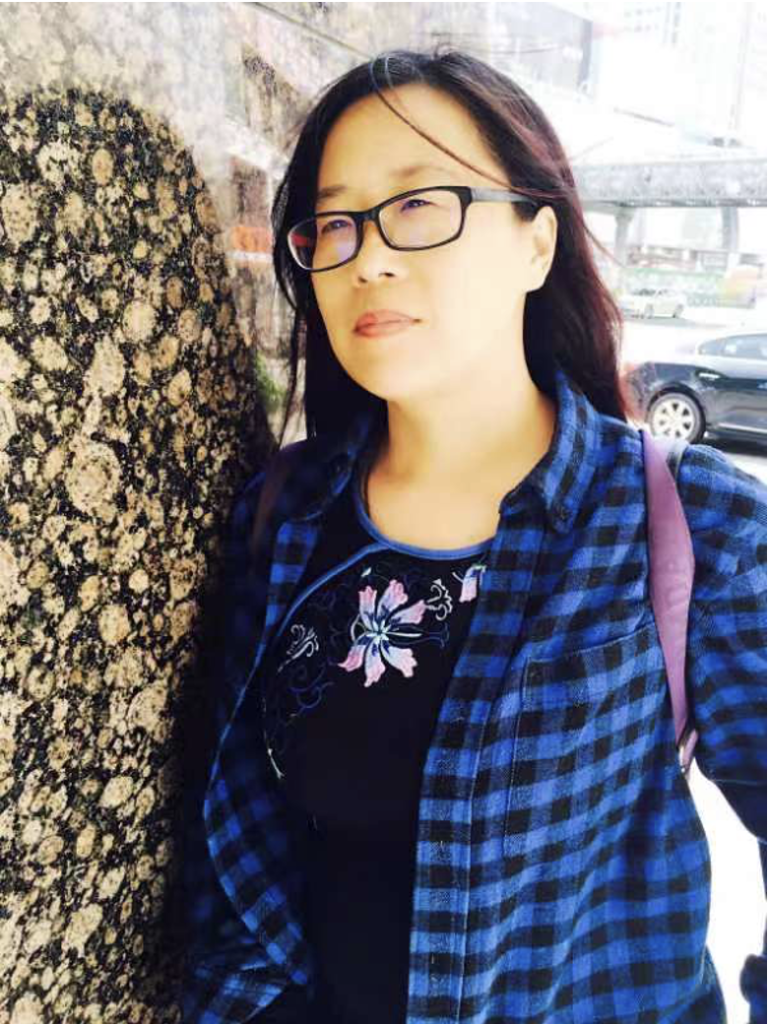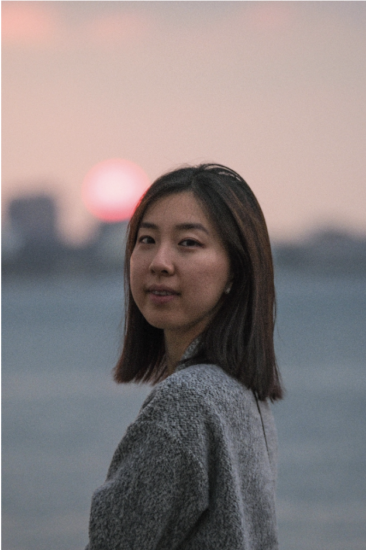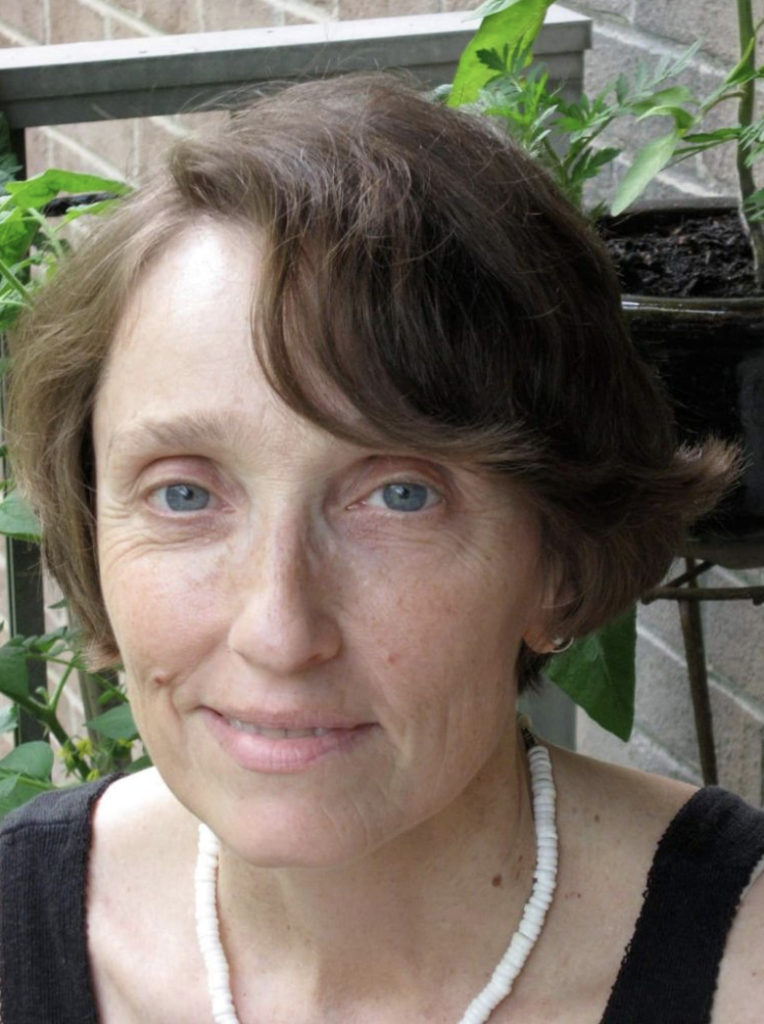
Time Flows Like Water; Sunshine For 10,000 Miles, A Love That Fills The Bed; Hello, September
Three Poems by A Hua, translated from the Chinese by Xuelan Su and Kathy Z. Fan
Time Flows Like Water
Use growth rings to tell the story. Get pine resin to seal it in history.
Leave the stump for egrets to perch on.
At Weishan Lake, as spring winds blow away the chaos of March,
wetlands burst with birdsong and flower-scent,
leaves jostled by rain and pearls of dew become like small boats that bob and sway.
… later, after lake waters recede,
the shadows take hold.
The miles I’d go to welcome you, to bring you back to this world.
流水纪
用年轮叙事, 请松香入史
为白鹭留下栖息的树桩
在微山湖,当春风拨乱
三月布下的迷阵
鸟鸣和花香,就挤满了湿地
运过雨水和露珠的叶子
也变成了一艘悠悠荡荡的小船
……后来,湖水后退
影子扎根
我迎出了三里,将你接回了尘世
Sunshine For 10,000 Miles, A Love That Fills The Bed
I don’t know why the sugarcane by the road is coated in a sugary frost.
Yet I know, sweetly regarded, then sweetly remembered,
is a most bittersweet despair.
I don’t know how to talk about life’s losses.
Yet I know
on days with you, through the darkness I can see light.
August. Sunshine for 10,000 miles, and a love that fills the bed.
I keep vigil in Pear Tree Village*
waiting for life’s flowering and the full moon.
“If heaven has a phone, remember to call home!”
— R, eyes are not only for seeing the world;
they’re also for letting tears flow.
* Pear Tree Village is a paradise imagined by this poet where one is allowed independence of mind; the freedom to think any thoughts or to feel any kind of emotion.
阳光万里,爱铺满床
我不知道路边的甘蔗,为什么
披上了甜的白霜
可我知道,这世上最甜蜜的哀伤
一定是,甜对甜的绝望
我不知道该怎么定义人间的别离
可我知道
有你的日子,黑暗里就可以看到光
八月,阳光万里,爱铺满床
我守在梨树镇
等着人间的花好和月圆
“如果天堂有电话,记得打一个回家”
—— R, 眼睛不只用来看世界
也要用来流眼泪
Hello, September
Fall bug sounds surge at sunset.
Each shaft of light is serene and bright.
Trees flecked in amber and browns,
in the after-rain a swell of earthy musk,
young pines cones ripen seeds to nuts.
My favorite is the sweet virgin’s bower…
how she loses herself, tendrils spiralling,
yet heedless of a mirror’s reflection.
By the lake, a cool mist slips past
a church with its coat of paint.
There in the shadows of flowering shrubs, someone says zai jian.*
“Your zai jian, is what kind of zai jian?”
And now there’s this bee buzzing by,
like someone’s small, cast-off, droning plane.
* Zai jian (pinyin spelling; pronouced zye-jenn; zye like the sound in rye or wry) is a common way to say “goodbye” in Chinese, literally translates to “see you again.”
你好,九月
散漫的秋虫声,氤氲着黄昏里
每一道清浅的光线
披上迷彩的树木,在雨后将清香
放大了数倍
松树塔状的花序,也渐渐长成了果实
最爱铁线莲,沉醉于舒展本身
却从不照镜子端详自己
在湖边,轻轻的薄凉淹过
一座涂满油彩的教堂
琳琅的花影下,有人说再见
“你说的再见,是哪一种再见”
眼前有蜜蜂飞过,像谁遗弃的一架
轰鸣的小飞机

A Hua, born Wang Xiaohua, is from Weihai, Shandong province, northern China. Her poetry has appeared in such publications as The People’s Literature, Poetry Magazine, Mountain Flowers, Flying Apsaras and October as well as in various anthologies. A Hua has also published several collections of poetry including Cattails (2016), and What Makes My Heart Swell (2021) through Shandong Publishing House. A Hua was an invited participant of Poetry Magazine’s 25th Youth Poetry Conference. She is a student of the 31st Advanced Research Class of the Lu Xun Literary Institute and a contract writer for the Shandong Writers Association. While A Hua is an award-winning, widely published and much loved poet in China, she is almost unknown outside its borders.

Kathy Z. Fan, also known as Ziying Fan, is a 2019 Princeton University graduate. There she focused on 19th Century French literature, but also worked with classical and contemporary Chinese texts. Kathy has translated brochures and educational materials between English and Chinese for nonprofit organizations in Vancouver, British Columbia, and she currently works as a software engineer for Google in Tokyo. Kathy joined Xuelan as co-translator in 2021, and they have been working together on A Hua’s poetry - of which they’re both in awe - ever since.

Xuelan Su is the pen name of Priscilla Schulz, a retired mental health clinician, writer and trauma treatment expert. She is a lifelong lover of poetry and student of the Chinese language. During the pandemic, reading A Hua in virtual meetings with friends was a source of connection and inspiration. The depth, beauty and relevance of A Hua’s poetry inspired Xuelan to share it, through translation, with the Chinese diaspora and English-speaking poetry world. Xuelan lives with her family in Seattle, Washington.




